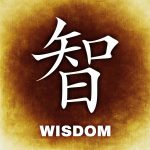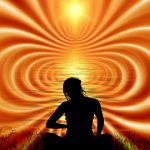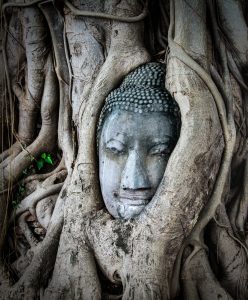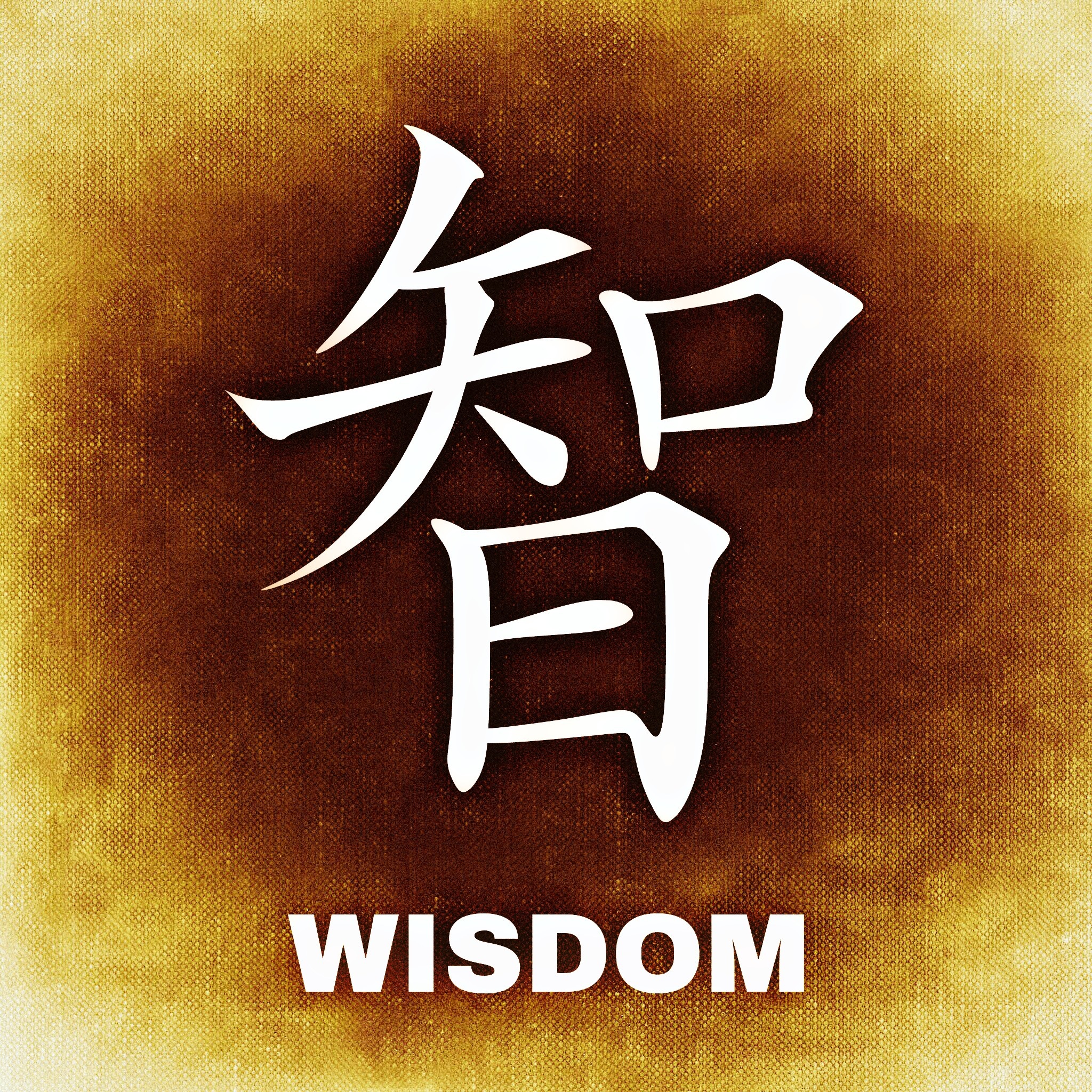Roger Walsh, M.D, Ph.D. defines Wisdom: It is not what to do, but how to be.
Knowledge studies others. Wisdom is self-known. – Lao Tsu.
Our world is awash with information, and we are drowning in data. Each day sees new discoveries, and a single newspaper tells more about the world than someone a few centuries ago learned in a lifetime.
new discoveries, and a single newspaper tells more about the world than someone a few centuries ago learned in a lifetime.
Yet something is missing. We have knowledge aplenty, but wisdom? That’s another story. A mere glance at the extent of suffering and insanity in the world makes it painfully clear that wisdom is in desperately short supply.
 This lack is doubly sad because wisdom is essential not only for sane lives and societies, but also for awakening. No wonder it is so highly valued by all the great religions. Both Jews and Christians claim “the greatest good is wisdom,” while the Koran declares that “those to whom wisdom is given; they truly have received abundant good.” In Hinduism the cultivation of wisdom constitutes one of the major spiritual paths or yogas, while Buddhism wisdom is something regarded as the preeminent spiritual capacity. What is wisdom and how do we foster it?
This lack is doubly sad because wisdom is essential not only for sane lives and societies, but also for awakening. No wonder it is so highly valued by all the great religions. Both Jews and Christians claim “the greatest good is wisdom,” while the Koran declares that “those to whom wisdom is given; they truly have received abundant good.” In Hinduism the cultivation of wisdom constitutes one of the major spiritual paths or yogas, while Buddhism wisdom is something regarded as the preeminent spiritual capacity. What is wisdom and how do we foster it?
What Wisdom is Not
Let’s begin by clearing the ground and saying what wisdom is not. Wisdom is not simply intelligence or knowledge, nor is it equivalent to dramatic experiences or personal power. All these can be valuable but are also quite distinct from wisdom.
Intelligence
Intelligence is the ability to learn, understand, and think clearly and logically. These are crucial capacities and can by employed to cultivate and express wisdom. However, wisdom is much more than simple intelligence, because wisdom results from applying intelligence to understanding the central issues of life.
Knowledge
Likewise, wisdom is more than knowledge. Taoism is very clear that “He who has  learned is not wise.” Whereas knowledge simply acquires information, wisdom requires understanding it. Knowledge looks at things objectively; wisdom examines them subjectively to recognize their implications for life and how to live life well. Knowledge informs us, wisdom transforms us. Knowledge is something we have, wisdom is something we must become. Knowledge is expressed in words, wisdom in our lives. Knowledge empowers; wisdom empowers and enlightens. Buddhism claims:
learned is not wise.” Whereas knowledge simply acquires information, wisdom requires understanding it. Knowledge looks at things objectively; wisdom examines them subjectively to recognize their implications for life and how to live life well. Knowledge informs us, wisdom transforms us. Knowledge is something we have, wisdom is something we must become. Knowledge is expressed in words, wisdom in our lives. Knowledge empowers; wisdom empowers and enlightens. Buddhism claims:
“One momentary glimpse of Divine Wisdom born of meditation is more precious than any amount of knowledge.”
Dramatic Experiences
Dramatic experiences, even powerful spiritual ones, are also not proof of wisdom. Anyone who does long-term, intensive spiritual practice will sooner or later be visited by remarkable experiences, including ecstatic visions, powerful emotions, and penetrating insights. Yet visions and insights can be wrong, and all experiences disappear. Powerful experiences are not necessarily proof of wisdom, nor do they all necessarily lead to wisdom. What is crucial is how we relate to and learn from our experiences. This is one of the vital secrets of spiritual practice.
 Spectacular experiences can either seduce us or inspire us. If they seduce us, we become attached and try to prolong and repeat them rather than letting go and growing beyond them. We then forget that, in the words of St. Gregory of Nyssa: “The graces that we receive at every point are indeed great, but the path that lies beyond our immediate grasp is infinite.”
Spectacular experiences can either seduce us or inspire us. If they seduce us, we become attached and try to prolong and repeat them rather than letting go and growing beyond them. We then forget that, in the words of St. Gregory of Nyssa: “The graces that we receive at every point are indeed great, but the path that lies beyond our immediate grasp is infinite.”
Even more destructive is to use powerful experiences not for self-transcendence, but for self-aggrandizement to make ourselves seem special, important, or enlightened. This can happen very swiftly. Many times I have deep insight, and then in the very next moment caught my mind swelling with pride and planning how to announce my discovery to the world. This is spiritual materialism, the tendency to become attached to spiritual experiences and pervert them for egocentric purposes. The following Zen story is useful antidote.
A young monk suddenly jumped up from his meditation cushion and ran to his teacher’s room. Without even pausing to take off his shoes, he barged in on his teacher, who was sitting reading, and breathlessly announced that he had just seen a vision of a golden Buddha radiating light.
“Don’t worry,” replied the teacher without even looking up from the book. “If you keep meditating it will go away.”
Of course, deep experiences can lead to wisdom. But they must be carefully examined, tested, discussed with a teacher, and used for learning and nonattachment. Wisdom can grow from experience but is considerably more than just experience.
Personal Power
Wisdom is also much more than personal power. A powerful teacher can be very seductive to students who believe power and charisma must be signs of spiritual maturity.
This is far from true. Teachers come in all shapes and sizes. Some have commanding personalities; others are quiet and retiring. It is crucial not to mistake personality and power for profundity.
 Power can be all the more seductive if it involved apparent psychic abilities. The existence of psychic abilities has been one of the most fiercely debated topics in science, with enormous amounts of hot air and insults hurled back and forth for over a century. Anyone who believes scientists always operate calmly and rationally can be cured of this belief by reading the literature on parapsychology. Growing evidence seems to the existence of psychic capacities, though the effects are usually very small. The great religions agree the psychic powers are possible. They also agree, however, that these powers are not signs of wisdom or spiritual maturity and are infinitely less important than the goal of liberation.
Power can be all the more seductive if it involved apparent psychic abilities. The existence of psychic abilities has been one of the most fiercely debated topics in science, with enormous amounts of hot air and insults hurled back and forth for over a century. Anyone who believes scientists always operate calmly and rationally can be cured of this belief by reading the literature on parapsychology. Growing evidence seems to the existence of psychic capacities, though the effects are usually very small. The great religions agree the psychic powers are possible. They also agree, however, that these powers are not signs of wisdom or spiritual maturity and are infinitely less important than the goal of liberation.
The great religions tend to view psychic abilities as mere sideshows, not to be deliberately sought. If the powers do emerge, they should be used sparingly and only for the good of others. An ancient myth makes this point well.
The Buddha and his disciples once came to a river where they patiently waited for a boatman to offer them a ride. While they waited, the Buddha taught a group of lay people who gathered around him. Suddenly a yogi who had devoted years to developing psychic powers appeared. Wanting to impress the crowd, he walked across the river and back again, and then challenged the Buddha to match his feat.
“Tell me,” asked the Buddha. “How much is the boat fare across the river?” “Not  much, just a few coins,” answered the surprised yogi. “And that’s how much your psychic powers are worth,” responded the Buddha.
much, just a few coins,” answered the surprised yogi. “And that’s how much your psychic powers are worth,” responded the Buddha.
Defining Wisdom
Wisdom is deep understanding and practical skill in the central issues of life, especially existential and spiritual issues.
Existential issues are those crucial and universal concerns all of us face simply because we are human. They include finding meaning a purpose in our lives; managing relationships and aloneness; acknowledging our limits and smallness in a universe vast beyond comprehension; living in inevitable uncertainty and mystery; and dealing with sickness, suffering, and death. A person who has developed deep insights into these issues – and skills for dealing with them – is wise indeed.
The Two Aspects of Wisdom
Vision and Understanding
The visionary aspect of wisdom comes from seeing deeply and clearly, penetrating below surface appearances to recognize the deeper nature of things and life. To do this requires highly refined awareness characterized by clarity, subtlety, and penetrating power. This penetrating power comes in large part from concentration, and in classical Buddhism concentration is described as the preceding or immediate cause of wisdom.
Vision provides the institutions from which understanding is born. Clear, concentrated vision sees things as they are, and understanding is born from actively investigating and analyzing the way things are. Investigation is so illuminating that Buddhists list it as one of the seven factors of enlightenment, those qualities and capacities of mind essential for deep awakening. A neo-Confucian sage promised: “If one plumbs, investigates into, sharpens, and refines himself, a morning will come when he will gain self-enlightenment.”
Likewise, the great neo-Confucian Wang Yang-Ming reported his own enlightenment came when he realized the significance of the phrase “investigate things so that knowledge may be extended to the utmost.”
By investigating things, wisdom is able to identify crucial principals and implications for living well. At a simple level, it recognizes cause-and-effect relationships such as, “This kind of behavior leads to suffering; that way of thinking promotes happiness.” At a more sophisticated level, wisdom is able to create whole psychologies and philosophies that precisely formulate and explain the visionary insights of wisdom and their practical applications. The visionary aspect of wisdom sees and explores three things: life, mind, and the nature of reality.
Life
Wisdom explores and reflects on the nature of life, especially on the causes of happiness and the causes and cures of suffering in the world, most of it caused by people blinded by destructive forces such as greed or hatred. Wisdom sees that some actions – for example, unethical or greedy ones – lead to short-term pleasure and greater long-term pain, whereas others – for example, being ethical and generous – lead to enduring well-being. So often people fail to recognize this, so they live in ways that thwart the possibility of happiness.
Visionary wisdom sees the conventional ways of living are rife with suffering. Practical wisdom begins when a person recognizes there must be a better way to live and commits to finding it. The quest to awaken begins.
Mind
Wisdom recognizes the awesome power of the mind to both create and cloud our experience, to produce ecstasy and suffering, and to learn or stagnate. Once you appreciate the all-consuming power of the mind, learning how your mind works and how to train it become vital goals.
Wisdom sees that the untrained mind is wild and uncontrolled. But it also recognizes that the mind can be trained, tamed, transformed, and transcended, and that this is the essential means for fostering happiness, love, altruism, and liberation. Training your mind becomes a pressing priority; this training in turn fosters the growth of wisdom.
The Nature or Reality
By probing deeply into their own experience, wise people see deeply into the  fundamental nature of reality. In doing so, they begin to rediscover aspects of the perennial philosophy. For them this is no mere theoretical knowledge, but is rather a direct personal recognition born of their penetrating explorations of life, the world, and the mind.
fundamental nature of reality. In doing so, they begin to rediscover aspects of the perennial philosophy. For them this is no mere theoretical knowledge, but is rather a direct personal recognition born of their penetrating explorations of life, the world, and the mind.
Wise people learn a great deal that remains hidden to the ordinary person, yet paradoxically they also learn there are limits to learning. Knowledge is always partial, the intellect limited, our understanding finite in an infinite universe of unfathomable mystery. Recognition and acceptance of these limits are aspects of wisdom and also, as we will see, essential means for developing it.
Practical or Applied Wisdom
Practical wisdom is skill in living, especially responding to the central, existential  issues of life. It is a way of living that expresses the visionary and understanding aspects of wisdom. At its deepest it is living sub specie aeternitatas, under the aspect of eternity, or as Taoists would say, “in alignment with the Tao.”
issues of life. It is a way of living that expresses the visionary and understanding aspects of wisdom. At its deepest it is living sub specie aeternitatas, under the aspect of eternity, or as Taoists would say, “in alignment with the Tao.”
Vast vision and profound understanding lead to an appreciation of “natural law,” and also of “natural ethics” and the “natural lifestyle.” These are, respectively, legal systems, ethics, and lifestyles rooted in, harmonious with, and awakening us to the fundamental nature of reality.
The Confucian ideal of the noble person or holy person (sheng-jen) embodies these ideas. The noble person, it is said, “complies perfectly with all the principals, lives in harmony with nature and society, and is the peerless teacher of age.”
People at all stages of development may strive to be ethical and kind, but perhaps only mystical experience and its resultant wisdom provide an unequivocal answer to the fundamental question, “Why be moral?” Without direct recognition of our unity with all people and all life, we can only try to think our way into justifying moral life, by considering ideas of justice and different people’s viewpoints. Such reasoning is obviously very valuable but may also be limited, and the pioneering researcher of moral development, Lawrence Kohlberg, concluded:
Not even the highest possible stage of justice reasoning can adequately answer the question “Why be moral?” The only ethical-ontological orientation that appears capable of generating a fully adequate resolution to ultimate moral questions such as “Why be moral?” “Why be just in a world that is seemingly unjust?” is a cosmic perspective. Such an orientation appears also to rely upon some type of transcendental or mystical experience – experience of a level at which self and the universe seem unified.
Mystical experience provides the foundation for mature wisdom, which in turn fosters mature transpersonal ethics, motivations, emotions, and service. Wisdom therefore leads us to live harmoniously and compassionately with others. These centuries-old claims have recently found support from researchers who concluded that the wise people they studied “transcend personal agendas and turned toward collective or universal issues.” Buddhism call this the union of wisdom and compassion, because wisdom naturally finds expression in service to others.







I am so grateful for this article. Roger Walsh is one of my favorite writers on spirituality.